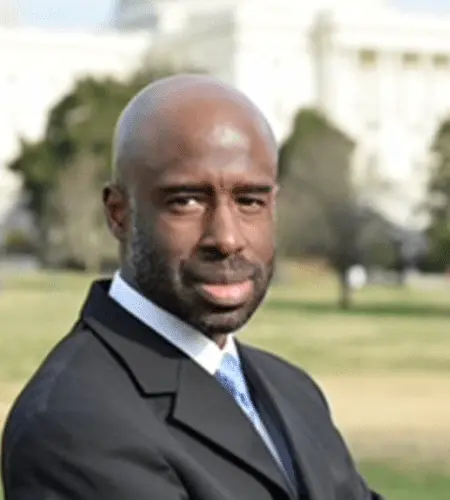After a divorce or legal separation, the court may order one spouse to pay the other spousal maintenance, often known as alimony. New York State divorce laws spousal maintenance is meant to assist the spouse who earns less in maintaining their quality of living during the marriage.
Types of New York State Divorce Laws Spousal Maintenance:
There are two major categories of New York State divorce laws spousal maintenance is recognized:
- Temporary Maintenance: Typically, temporary maintenance is granted to assist the partner with a lower income to get back on their feet after the divorce. Depending on the situation, it may be given for a shorter or longer time, ranging from one to three years.
- Permanent maintenance: When the lower-earning partner cannot maintain a comparable quality of life without the help of the higher-earning spouse, permanent care is granted. It might be given to the spouse with the lesser income for the remainder of their lives or end after a specific amount of time.
Depending on the unique circumstances of each case, the amount of maintenance that is awarded to spouses can vary significantly. However, the recommendations offer a decent place to start when figuring out how much New York State divorce laws spousal maintenance might be granted.
Factors Considered by the Court for New York State Divorce Laws Spousal Maintenance:
The court will take into consideration several considerations before making an order; they are as follows:
- Income and assets: The earnings and assets of each spouse will be examined first by the court. The partner asking for spousal support must demonstrate that they don’t make enough money to cover their reasonable demands. To ascertain how much the paying spouse can afford to contribute to New York State divorce law spousal support, the court will also consider their income and assets.
- Age and Health of the Couple: The court will also consider the spouses’ ages and physical conditions. The spouse requesting spousal maintenance may be less able to sustain themselves financially if they are older or in poorer health.
- Length of the Marriage: The likelihood that the court will grant spousal support increases with the length of the marriage. This is because the possibility of the spouses becoming financially interdependent increases with the size of the wedding.
- Future and Current Earning Potential: The court will also consider each spouse’s potential income. The spouse requesting New York State divorce laws spousal maintenance may be more likely to get it if they have limited earning potential.
- Distribution of Marital Property: When assessing how much spousal support should be paid, the court will also consider the division of marital assets. Less spousal maintenance may be granted if the spouse requesting it receives a sizable amount of the marital estate.
- Pre-Divorce or Premarital Agreement: The court will consider the provisions of any prenuptial or postnuptial agreements between the parties when assessing the value of spousal maintenance.
- Tax Consequences: When making its judgment, the court will also consider the tax implications of spousal maintenance. For instance, the court might award lower spousal maintenance if the partner who pays is in a substantial tax bracket to lessen their tax burden.
- The Children’s Residence: If there are children from the relationship, the court will consider their location when deciding how much spousal support to award. The court may provide higher spousal maintenance to the spouse, requesting it if the children reside with them to help them fulfill their requirements.
Common Misconceptions About New York State Divorce Laws Spousal Maintenance:
Spousal maintenance is misunderstood widely, not just in New York but nationwide. These myths can cause miscommunications and even hostility between separating partners.
- Only women are eligible for spousal support – Regardless of the spouses’ gender, spousal maintenance may be granted. When determining whether to award spousal maintenance, the court will consider various variables, including the duration of the marriage, the income of every spouse, and the earning potential of each spouse.
- Spousal maintenance is always permanent – Spousal maintenance may be granted indefinitely or for a set duration. Based on the considerations mentioned above and the requirements of the spouse with a lower income, the court will decide the length of spousal maintenance.
- Spousal maintenance is always based on a formula – In New York, spousal maintenance is calculated using a procedure, but the court is not required to use it. When determining the sum of spousal maintenance to award, the court may consider additional variables, such as the requirements of the spouse with the lower income.
It can be terminated or modified at any time. If there has been a material change in the situation since the order was made, the court can modify or cancel spousal maintenance. For instance, the court might decide to cut or end the maintenance payments if the recipient’s earnings increase dramatically.
New York State divorce laws spousal maintenance is always a bad thing – That is untrue. The lower-earning spouse may find spousal maintenance to be a helpful aid in adjusting to life after divorce. It can offer stability and financial security, as well as aid the spouse in maintaining their way of living.
The Importance of Having a Lawyer for New York State Divorce Laws Spousal Maintenance:
Understanding the Legal System: The legislation regulating spousal support in New York is complicated, and the court will consider many different concerns before deciding. An attorney will be knowledgeable about the law and able to inform you of your options and rights.
Negotiate on Your Behalf: If you’re filing for spousal support, your attorney can bargain with your partner or their attorney to come to a reasonable settlement. It may assist you in avoiding the anxiety and unpredictability of a trial while also saving you time and money.
Court Representation: Your attorney can defend and fight for your rights if talks break down. If your case is complicated or has any contentious points, this is crucial.
Navigate the complexities of divorce and spousal support with confidence. Our experienced divorce attorney at The Law Offices Of SRIS.P.C. is experienced in the New York Divorce Maintenance Calculator, ensuring a thorough understanding of your rights and available options for a beneficial outcome in your case.
FAQs About New York State Divorce Laws Spousal Maintenance:
What factors does the court consider when determining spousal maintenance in New York?
The court considers factors such as the length of the marriage, each spouse’s income and financial needs, health, contributions to the marriage, and any prenuptial agreements when deciding on spousal maintenance.
Is spousal maintenance always awarded in a New York divorce?
No, spousal maintenance is not automatic. It depends on various factors, and the court will assess the financial circumstances of both spouses to determine if maintenance is necessary and, if so, the amount and duration.
Can spousal maintenance be modified after it is initially determined?
Yes, under certain circumstances, either spouse can seek a modification of spousal maintenance. Changes in income, health, or other substantial life changes may warrant a review and adjustment by the court.
How long does spousal maintenance last in New York?
The duration of spousal maintenance varies. In New York, it can be temporary, rehabilitative (to allow the recipient to become self-supporting), or permanent, depending on the specific circumstances of the case.
Can spousal maintenance be waived in a divorce settlement?
Yes, spouses have the option to negotiate and include a waiver of spousal maintenance in their divorce settlement. This often involves a careful consideration of each party’s financial situation and future needs.









